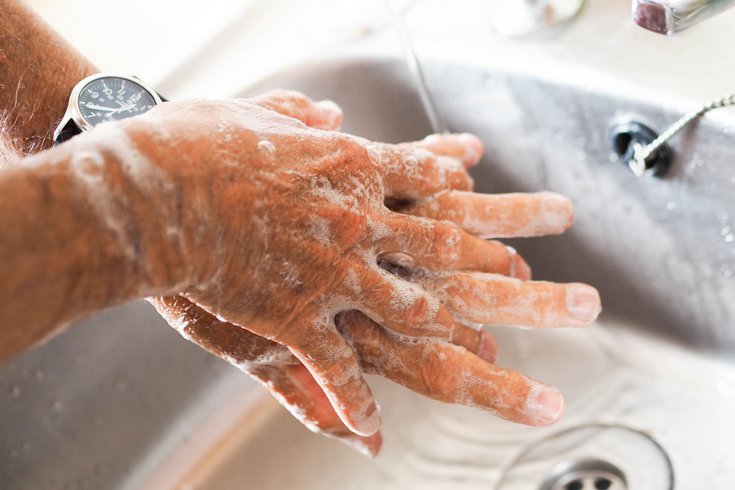
February 27, 2023
 Sean Horsburgh/Unsplash
Sean Horsburgh/Unsplash
The best ways to prevent a Shigella infection, a highly contagious stomach bug that can resist antibiotics, include washing hands thoroughly after changing diapers and before preparing food.
There are many germs that can cause stomach illnesses, but one particular bacteria type has health experts concerned because it is highly contagious and one of its variants has proven to be resistant to antibiotics.
There are typically about 450,000 Shigella bacteria infections in the U.S. each year, but the Centers for Disease Control and Prevention has warned that cases caused by the XDR variant are on a concerning upswing. The antibiotic-resistant variant accounted for 5% of all Shigella infections last year. But as recently as 2015, it did not cause any. And it accounted for less than 1% of cases until 2020.
Shigella infections can cause diarrhea containing blood or mucus, stomach pain, cramps, fever, nausea and vomiting.
Most people recover from a Shigella infection without needing treatment, but some people with severe cases and those with weakened immune systems may be prescribed antibiotics. But the illnesses caused by the XDR variant are resistant to all commonly prescribed antibiotics and alternatives, including azithromycin, ciprofloxacin, ceftriaxone, trimethoprimsulfamethoxazole (TMP-SMX), and ampicillin.
Clinical studies have been unable to suggest the optimal antimicrobial treatment options for treating these infections, the CDC says.
Shigella infections occur more commonly in children under age 5, but anyone can be vulnerable to Shigella. The bacteria spreads when people come in contact with the stool of an infected person and then touch their mouths without properly washing their hands. This can occur when changing diapers or helping toddlers with toilet training.
Shigella also can be passed through sexual contact, by consuming infected food or drink or swimming in water that has been contaminated with the bacteria.
The increased cases are primarily being seen among men who have sex with men, people experiencing homelessness, people with HIV and international travelers.
Here are some tips from the CDC and the Mayo Clinic on how to avoid a Shigella infection:
• Wash hands with soap and water for at least 20 seconds frequently, especially after going to the bathroom or changing a diaper, before preparing food or eating, and before any sexual activity.
• Supervise young children washing their hands.
• After changing a diaper, immediately dispose of it in a covered, lined garbage can.
• Disinfect diaper-changing areas after every use.
• Don't swallow water from ponds, lakes or swimming pools.
• If you or your partner has diarrhea, don't have sex. The CDC recommends waiting until at least two weeks after diarrhea ends to have sex.
• If you are sick with a Shigella infection, don't prepare food or share food with others, and do not go swimming until you are fully recovered
The CDC has advised health care professionals to be vigilant by reporting cases of the XDR variant to local and state health departments. It emphasized the importance of educating at-risk patients and communities about proper preventative measures.